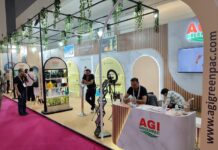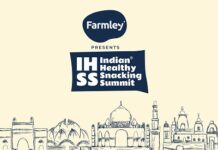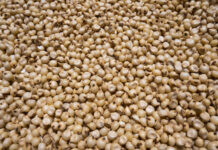
On 3 December, the ‘Coalition Food2Food 2.0’ kick-off meeting took place. This coalition includes more than 30 supply chain partners committed to the circular use of plastic. The focus is on an industrial test of CurvCode, a Dutch innovation for separating plastics from waste streams. Efficient sorting is important for the transition to a circular plastic chain.
The operational and financial effects of transitioning to a circular plastic chain are also investigated. Concrete details on how this new technique can grow towards market acceptance and commercial applications will work out. The coalition wants to make a tangible contribution to solving the plastic problem.
Recycling single-use food packaging is an urgent social problem. These packaging materials represent approximately 40% of the plastic volume in the Netherlands and are almost entirely produced from fossil raw materials (oil). Reuse leads to less CO2 emissions.
The European Food Safety Authority (EFSA) has strict requirements for food packaging. The use of recycled plastic to produce plastic food packaging requires approval from EFSA. Recycled plastic must comply with quality standards. High-quality sorting is an important condition to meet EFSA requirements.
Plastic Pact NL asked the project group ‘Food2Food’ in 2019 to investigate which technologies are suitable to efficiently separate plastics from waste streams. In doing so, it was determined that the digital watermark CurvCode has a lot of potential. CurvCode is a digital watermark developed by technology company FiliGrade based in Eindhoven.
During the test program, the operation of CurvCode will be validated under industrial conditions. Completion of the test program is expected in the second quarter of 2022. Proposals for commercial introduction should also be ready by then.
The project is one of five national ‘Moonshot’ breakthrough projects supported annually by the Acceleration House. Het Versnellingshuis (‘Accelaration House’) is a partnership of VNO-NCW, MKB-Nederland, the ministry of Infrastructure and Water Management, MVO Nederland and Het Groene Brein (‘Green Brain’).
Participating parties are Avery Dennison, Bordex Packaging, Bliston Packaging, Bond Seafood, Cumapol/Cure, Dijkstra Plastics, FiliGrade Sustainable Watermarks, FrieslandCampina, Guillin, Haval, Hordijk Verpakkingen, Indorama/Wellman Recycling, Jumbo, Klöckner Pentaplast, Kornelis Caps and Closures, Meulendijks Packaging, Multivac, NNZ, Oerlemans Packaging Group, Paardekooper, Plato Product Consultants / University of Twente, Signature Foods, SPAR, Terbeke, TNO-Brightlands Material Center, Unilever, Veolia, Verstappen Advanced Packaging, Wageningen University & Research.
IndiFoodBev — authentic, impactful and influential
An English-language food and beverage processing and packaging industry B2B platform in print and web, IndiFoodBev is in its third year of publication. It is said that the Indian food and beverage industries represent approximately US$ 900 billion in revenues which implies more than 20% of the country’s GDP. Eliminating the wastage on the farmside can help to deliver more protein to a higher number of the population apart from generating sizable exports. The savings in soil, seeds, water, fertilizer, energy and ultimately food and nutrition could be the most immense contribution that country is poised to make to the moderation of climate change.
To improve your marketing and grow sales to the food and beverage processing and packaging industry, talk to us. Our research and consulting company IppStar [www.ippstar.org] can assess your potential and addressable markets in light of the competition. We can discuss marketing, communication, and sales strategies for market entry and growth.
Suppliers and service providers with a strategy and budget for targeted marketing can discuss using our hybrid print, web, video, and social media channels to create brand recognition linked to market relevance. Our technical writers are ready to meet you and your customers for content.
The second largest producer of fruit and vegetables in the world is continuously expanding processing capacities and delivery systems with appropriate innovative technologies. We cover product and consumer trends, nutrition, processing, research, equipment and packaging from farm to thali. Get our 2025 media kit and recalibrate your role in this dynamic market. Enhance your visibility and relevance to existing markets and turn potential customers into conversations. Ask for a sample copy of our bi-monthly in print or our weekly IndiFoodBev eZine each Wednesday.
For editorial info@ippgroup.in — for advertisement ads1@ippgroup.in and for subscriptions subscription@ippgroup.in
Naresh Khanna – 10 February 2025
Subscribe Now










